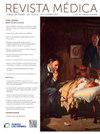围产期丧亲、心理健康和心理支持的重要性
IF 0.4
Q4 MEDICINE, GENERAL & INTERNAL
引用次数: 0
摘要
悲伤是对重大损失的正常、情感和心理适应反应。特别是,哀悼一个孩子的死亡被认为是人类所能经历的最紧张和最具破坏性的情况之一。围产期悲伤被定义为怀孕期间婴儿死亡后直至生命第一个月的反应。没有接受专门护理来应对围产期悲伤与发展为精神健康障碍的风险增加有关。在过去十年中,促进确认围产期悲伤及其支持的国家和国际倡议显著增加。本文的目的是提供有关围产期悲伤及其对心理健康影响的证据,考虑其定义和方法在历史上和当前的建议支持和阐述。尽管在使围产期悲伤的心理影响可见方面取得了进展,但仍然需要在国家一级将不同的公共和私人保健中心的经验更系统化。本文章由计算机程序翻译,如有差异,请以英文原文为准。
Duelo perinatal, salud mental y la importancia del acompañamiento psicológico
Grief is a normal, emotional and psychological adaptive response to a significant loss. Particularly, mourning the death of a child is considered one of the most stressful and devastating situations that a human being can experience. Perinatal grief is defined as the reaction after the death of a baby during pregnancy and up to the first month of life. Not receiving specialized care to cope with perinatal grief has been associated with an increased risk of developing mental health disorders. In the last decade there has been a significant increase in national and international initiatives that promote the validation of perinatal grief and its support. The objective of this article is to provide a review of the evidence regarding perinatal grief and its impact on mental health, considering its definition and approach throughout history and current proposals for its support and elaboration. Despite the advances in making visible the psychological impact of perinatal grief, greater systematization of experiences at the national level in different health care centers, both public and private, is still required.
求助全文
通过发布文献求助,成功后即可免费获取论文全文。
去求助
来源期刊

Revista Medica Clinica Las Condes
MEDICINE, GENERAL & INTERNAL-
CiteScore
0.80
自引率
0.00%
发文量
65
审稿时长
81 days
 求助内容:
求助内容: 应助结果提醒方式:
应助结果提醒方式:


